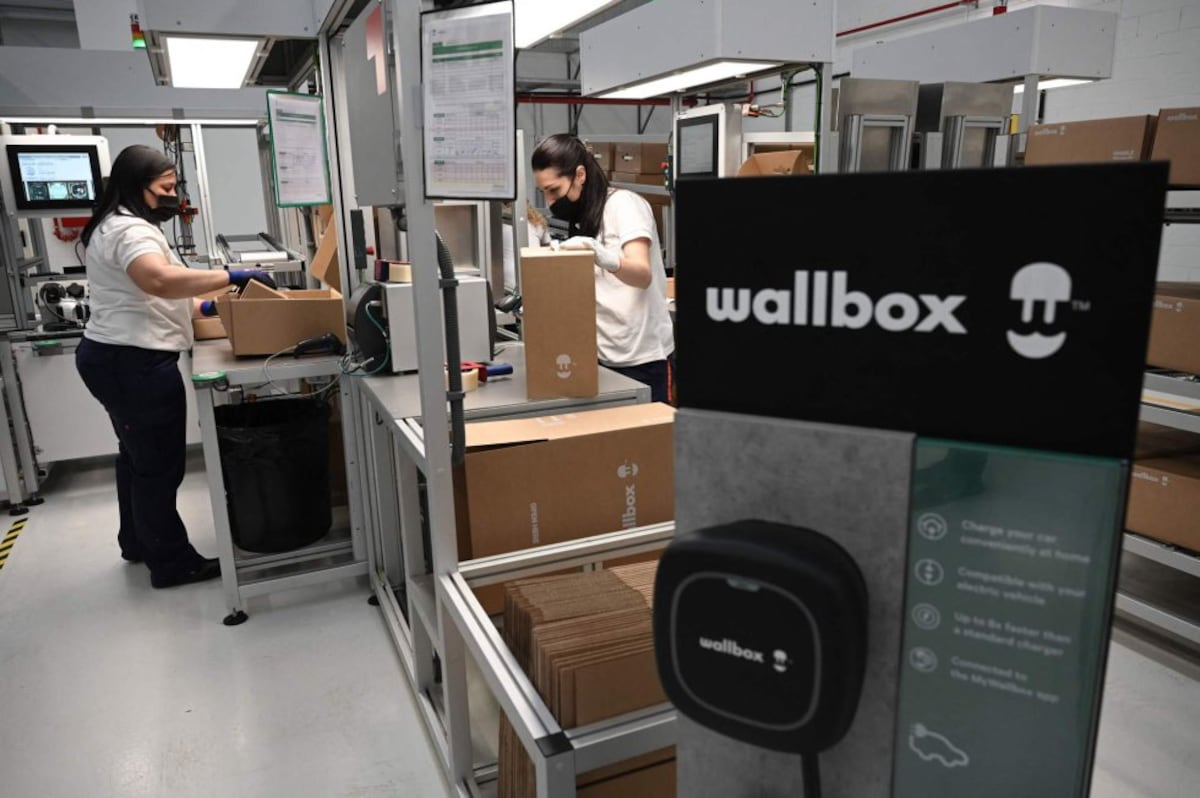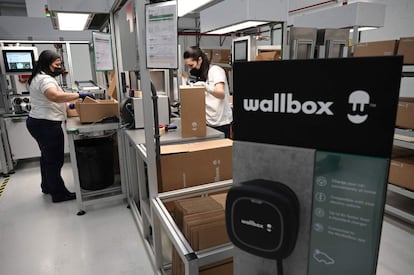Wallbox deepens stock market decline and loses 57% year-to-date under analyst pressure | Companies


Wallbox, one of the largest Spanish startups present in the financial markets, is suffering severe punishment on the stock market. Its shares are already down about 57% year to date, reaching their all-time lows, with worsening in recent weeks amid uncertainty around the rise of electric vehicles. In fact, over the past month they have fallen by about 32%, to $0.75 – a price that gives the company a market capitalization of $158 million (almost €150 million).
The company, a leading provider of electric vehicle (EV) charging and energy management solutions, has been punished in recent days by downgrading recommendations from some analysts. Thus, Canaccord Genuity lowered its target price for Wallbox Class A shares from $3.25 to $1.50, although it maintained a buy recommendation. Its revision came after the presentation of third-quarter results, a period in which it fell short of expectations, according to these analysts, who believe they will have a material impact on the company’s financial forecasts.
Likewise, Stiefel Nicolaus cut his recommendation on Wallbox from “buy” to “hold”, cutting his price target from three to $1.50. UBS followed suit, cutting its price target from $1.75 to $1.25, while Robert Baird cut it from $3 to $2.
However, the average price target of analysts who follow the company is $1.65, which is 120% higher than the current price.
The fall in the stock market has become a common trend for companies in the sector, which are trading at yearly lows. In fact, shares of US companies ChargePoint and Blink Charging fell 52% and 54% respectively; Shares of Norway’s Zaptec fell 59%, while Finland’s Kempower fell 69%.
Turmoil in financial markets punishes Wallbox investors. Its major shareholders include Iberdrola; Orilla Asset Management, the investment company of Francisco Riberas, president of Gestamp; Martha Santacana, owner of Eurofred; Consilium, the investment group of the Puig family; manager of Seaya Ventures; its co-founder and CEO Enric Asuncion; and energy technology solutions group Generac Power Systems, with which it entered into a commercial agreement last spring.
These investors continue to support the company. Last summer, Wallbox completed a capital increase of $45 million (approx. €42.6 million), of which $35 million came from Generac. Orilla Asset Management, Consilium and Enric Asunción also participated in the deal.
In recent days, Wallbox has announced significant changes to its board of directors, notably the appointment of Beatriz Gonzalez, founder and CEO of Seaya Ventures, as president of the aforementioned management body following the resignation of Carl Anders Wilhelm Pettersson. . Earlier, on October 8, the board of directors appointed David Mesonero, the current director of corporate development at Iberdrola, as an independent director following the resignation of also the director of the electricity company, Cesar Ruiperez Cassinello.
In addition, Wallbox also reviewed its third quarter accounts, a period in which it generated revenue of €34.7 million, up 7%, against an operating loss of €33.7 million. The company indicated that as of September 30, it had liquidity, cash equivalents and financial investments of €70.5 million and long-term debt of €84 million.
Company position
Company sources indicate that the top priority is to execute the business plan well, and the company continues to do so. “An example of this is our last quarter, where we delivered strong results: We grew revenue in North America by 45%, far outpacing the EV market’s growth of 4%. Even in Europe, where the market fell, Wallbox achieved 1% growth. This year, our global revenues increased by 26%, compared with EV market growth of 3% in our operating regions,” they say.
To this end, they argue that achieving profitability and cash generation is key to demonstrating the strength of the business and Wallbox’s potential. “Once investors understand this, we expect the share price to react positively,” said these sources, who insist the share price does not influence the company’s performance. “Thanks to our strong cash position, commitment to our key initiatives and the support of strategic shareholders, we continue to operate from a position of strength and confidence in our long-term vision,” they point out.
